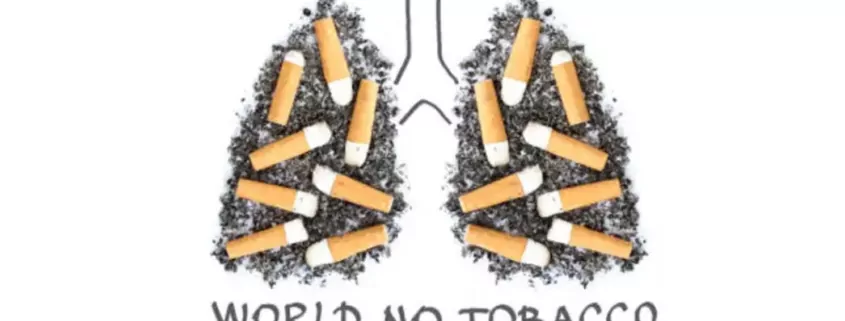World No Tobacco Day 2025: Quit Smoking, Save Lives
Every year on May 31st, the global community unites for World No Tobacco Day. It’s more than just a date on the calendar; it’s a powerful, worldwide call to action, a moment to spotlight the profound and often devastating effects of tobacco use and to galvanize efforts encouraging people everywhere to quit for good. Whether you’re currently a smoker contemplating change, someone who has successfully quit, or an individual simply concerned about the health of your loved ones and community, this day carries a message of hope and a reminder of the urgent need for action.
Let’s be clear: this isn’t about shaming or guilt-tripping. The journey of nicotine addiction is complex. Tobacco, in its various forms, has been cleverly marketed and deeply woven into social rituals for generations. For many, it becomes a perceived coping mechanism or a deeply ingrained habit. But the undeniable truth is that tobacco is a silent and relentless destroyer, gradually undermining health and shortening lives.
The Sobering Reality of Tobacco’s Global Impact
The statistics surrounding tobacco use are stark and cannot be ignored. According to the World Health Organization (WHO), tobacco kills more than 8 million people globally each year. This isn’t just an abstract number; it represents millions of preventable deaths and immeasurable suffering for families and communities. The health consequences are extensive and well-documented, including:
- Cancers: Lung cancer is the most notorious, but tobacco use is linked to numerous other cancers, including those of the mouth, throat, esophagus, bladder, kidney, pancreas, and cervix.
- Heart Disease and Stroke: Smoking significantly damages blood vessels, increases blood pressure, and raises the risk of heart attacks, strokes, and other cardiovascular diseases.
- Lung Diseases: Beyond cancer, smoking is a primary cause of chronic obstructive pulmonaryary disease (COPD), which includes chronic bronchitis and emphysema, leading to debilitating breathing difficulties.
And the harm isn’t confined to the smoker. Secondhand smoke poses a serious threat to non-smokers, particularly children, partners, and colleagues. Exposure to secondhand smoke increases the risk of lung cancer, heart disease, respiratory infections, and sudden infant death syndrome (SIDS) in babies. When someone smokes in a shared space, they are making a decision that impacts the health of everyone around them.
Beyond the devastating health toll, the economic burden of tobacco is immense. For individuals, a pack-a-day habit can translate into thousands of pounds, dollars, or euros spent annually – money that could be used for essentials, education, or well-deserved leisure. For nations, the costs include massive healthcare expenditures to treat smoking-related diseases and lost productivity due to illness and premature death.
The “Modern” Trap: Vapes and E-Cigarettes Targeting Youth
In recent years, the tobacco and nicotine landscape has evolved, with e-cigarettes and vaping devices gaining significant traction, especially among younger demographics. Often marketed with sleek designs, appealing flavors (like fruit and candy), and sometimes misleading claims of being a “safer” or “cooler” alternative, these products have become a new frontier of concern for public health officials.
While vaping is generally considered less harmful than smoking traditional cigarettes because it avoids the combustion of tobacco. But most vapes still deliver nicotine, a highly addictive substance that can have detrimental effects on adolescent brain development, impacting attention, learning, and mood. There are also growing concerns about the long-term effects of inhaling the various chemicals present in vape aerosols. World No Tobacco Day increasingly highlights the tactics used by the nicotine industry to attract young users to these newer products, potentially creating a new generation addicted to nicotine.
Why World No Tobacco Day Remains Crucial
The World Health Organization initiated World No Tobacco Day to achieve several key objectives: to expose the manipulative tactics of the tobacco and nicotine industries, to raise awareness of the health risks, and, most importantly, to support individuals in their efforts to quit. Each year, the campaign often focuses on a specific theme, such as protecting youth from industry manipulation, the environmental impact of tobacco (cigarette butts are a major source of plastic pollution), or the benefits of cessation.
The core message, however, remains consistent: fostering a global movement towards a world where fewer people are ensnared by tobacco and nicotine addiction. This day serves as a reminder that collective action – from individuals, communities, healthcare providers, and governments – is essential to counter the pervasive influence of the tobacco industry and promote healthier lifestyles.
The Remarkable Benefits of Quitting: Your Body’s Capacity to Heal
Quitting smoking or any form of tobacco use is undoubtedly one of the most beneficial decisions anyone can make for their health. The positive changes begin almost immediately. According to organizations like the American Lung Association, the timeline of recovery is inspiring:
- Within 20 minutes: Your heart rate and blood pressure start to drop.
- Within 12 hours: The carbon monoxide level in your blood returns to normal.
- Within 2 to 12 weeks: Your circulation improves, and your lung function increases.
- Within 1 to 9 months: Coughing and shortness of breath decrease as your lungs begin to repair.
- Within 1 year: Your risk of coronary heart disease is about half that of a continuing smoker.
- Within 5 to 10 years: Your risk of stroke can fall to that of a non-smoker.
- Within 10 years: Your risk of dying from lung cancer is about half that of a person who is still smoking. Risks of other cancers also decrease.
This remarkable capacity for healing underscores that it’s never too late to quit. Even if you’ve smoked for many years, stopping now can add valuable years to your life and significantly improve your quality of life.
Overcoming the Challenge: Support is Available
Acknowledging that quitting is hard is the first step. Nicotine is a powerful and highly addictive drug, and withdrawal symptoms (irritability, cravings, difficulty concentrating) can be challenging. However, you don’t have to face this battle alone. Numerous resources and support systems are available:
- Healthcare Professionals: Your doctor can provide advice, support, and information on cessation aids.
- Nicotine Replacement Therapy (NRT): Products like patches, gum, lozenges, inhalers, or nasal sprays can help manage withdrawal symptoms by providing nicotine without the harmful toxins of smoke.
- Prescription Medications: Certain medications can help reduce cravings and withdrawal.
- Support Groups and Hotlines: Sharing experiences and strategies with others who are quitting can be incredibly helpful. Many countries have national quitlines.
- Digital Tools: Numerous apps offer tracking, motivation, and support for your quit journey.
If you’ve tried to quit before and relapsed, don’t be discouraged. Most successful quitters make multiple attempts before they succeed for good. Each attempt is a learning experience that brings you closer to your goal.
What Can You Do This World No Tobacco Day?
Even if you’re not a smoker, you can play a vital role:
- Support Quitters: Offer encouragement and understanding to friends, family, or colleagues trying to quit.
- Educate and Advocate: Share factual information about the risks of tobacco and vaping. Advocate for smoke-free and vape-free public spaces in your community.
- Protect Youth: Talk to young people about the dangers of nicotine addiction and the marketing tactics used to lure them in.
- Celebrate Success: If you’ve successfully quit, share your story and inspire others. Reflect on your achievement and the positive changes it has brought to your life.
World No Tobacco Day is more than an awareness campaign; it’s a catalyst for change. It’s about empowering individuals, holding industries accountable, and collectively striving for a healthier, smoke-free, and vape-aware future. Let’s use this day to start conversations, break down myths, and reaffirm our commitment to choosing health over harmful habits. Together, we can all breathe a little easier.
- Malaysia Negeri Sembilan Backs Vape Ban, Awaits Clear Laws - August 5, 2025
- Is It Illegal to Vape or Smoke While Driving in Massachusetts? - August 5, 2025
- Austria Plans to Ban Disposable E-Cigarettes - August 5, 2025







